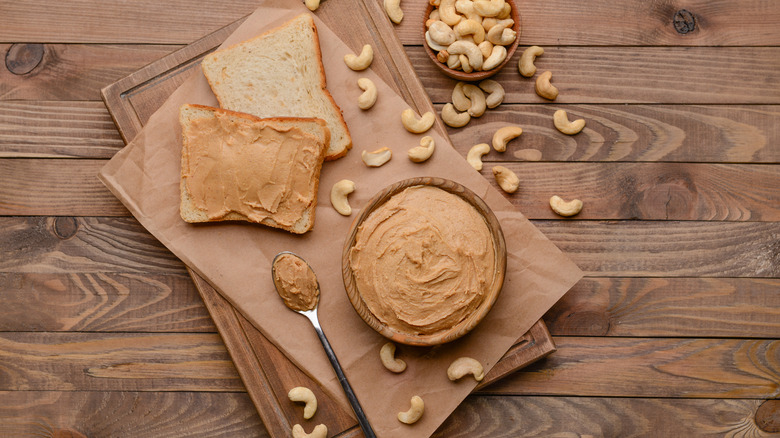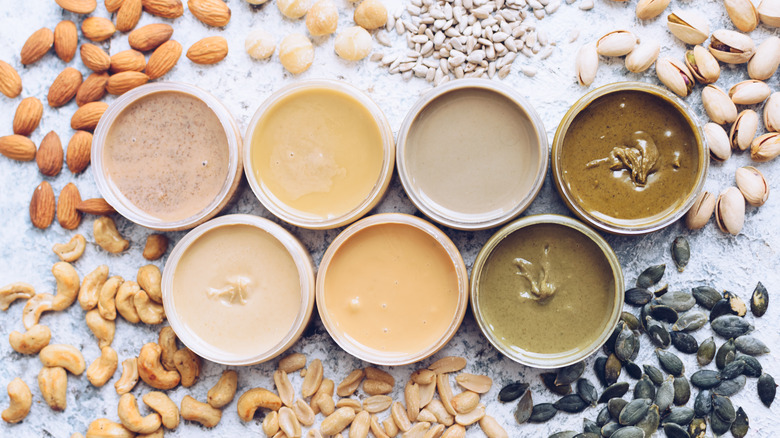Nut Butters Are More Nutritious Than You Thought
If you've been dodging that spoon full of creamy nut butter, or avoiding adding it with jelly on sandwiches because you think it might be less-than-wholesome, take note. Butter may be in the name, but if you choose wisely, nut butters can be an excellent part of a healthy eating plan.
WebMD explains that the high protein and good fat content of nut butters can keep you feeling full and energized for long periods of time, which might help you consume fewer calories overall. In a nut-shell, nut butters contain protein, fiber, healthy fats, antioxidants, vitamins, and minerals, all of which are powerful nutrients that can help with weight control and may help prevent heart disease, cancer, diabetes, and high cholesterol levels.
Lindsay Wandzilak, NASM certified trainer, nutritionist, and founder of The Daily, tells Delish that nut butters (like almond and cashew) have gotten a bad rap because they're often nestled into high-sugar, high-fat candies. The truth is though that almonds and cashews are brimming with healthy fats and can keep you satisfied for hours. The trick is to stick to the recommended portion size and choose sugar-free nut butter brands with three or fewer ingredients.
Or, you can go one step further and buy only nut butters that have just one ingredient — the nut featured on the label. Pure nut butters might require a little extra effort when it comes to stirring, but many "no stir" nut butters contain unhealthy hydrogenated oils that can increase cholesterol levels.
Which nut butter is the best?
When it comes to picking the "best" nut butter, it's really a personal choice. Do you prefer almonds, walnuts, or cashews? Nutritionally, they're all pretty similar, with some differences here and there. Everyday Health explains that, when compared to peanut butter, almond butter delivers more healthy monounsaturated fat. If you choose walnut butter, you'll find a higher level of heart-healthy omega-3 fatty acids and powerful, free radical-fighting antioxidants. Cashew butter delivers the same healthy fats, plus a decent amount of iron and zinc.
But for folks with peanut and tree nut allergies, the site further recommends sunflower seed butter, sesame tahini, and soy butter made with roasted soybeans as all three of these deliver a creamy mouthfeel along with potent antioxidants, vitamins, and minerals.
If you're a hazelnut fan, be wary when shopping for hazelnut butter, too. There are many kinds of hazelnut "spreads" that have a copious amount of sugar and fat brimming in them (we're looking at you Nutella).
Pistachio enthusiasts can enjoy nut butter too. Scott Keatley, RD, dietitian and founder of Keatley Medical Nutrition Therapy, tells Women's Health magazine that protein-rich pistachio butter is brimming with B vitamins that can "help turn calories into energy."
And let's not forget the nut (er, legume) that started it all — the peanut. Bon Appétit magazine explains that peanut butter is a great source of protein and monounsaturated fat, both of which contribute to overall health, well-being, and feelings of fullness.

